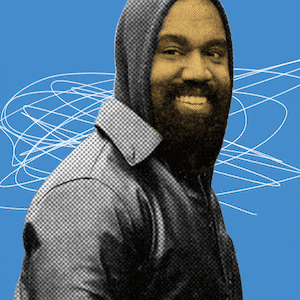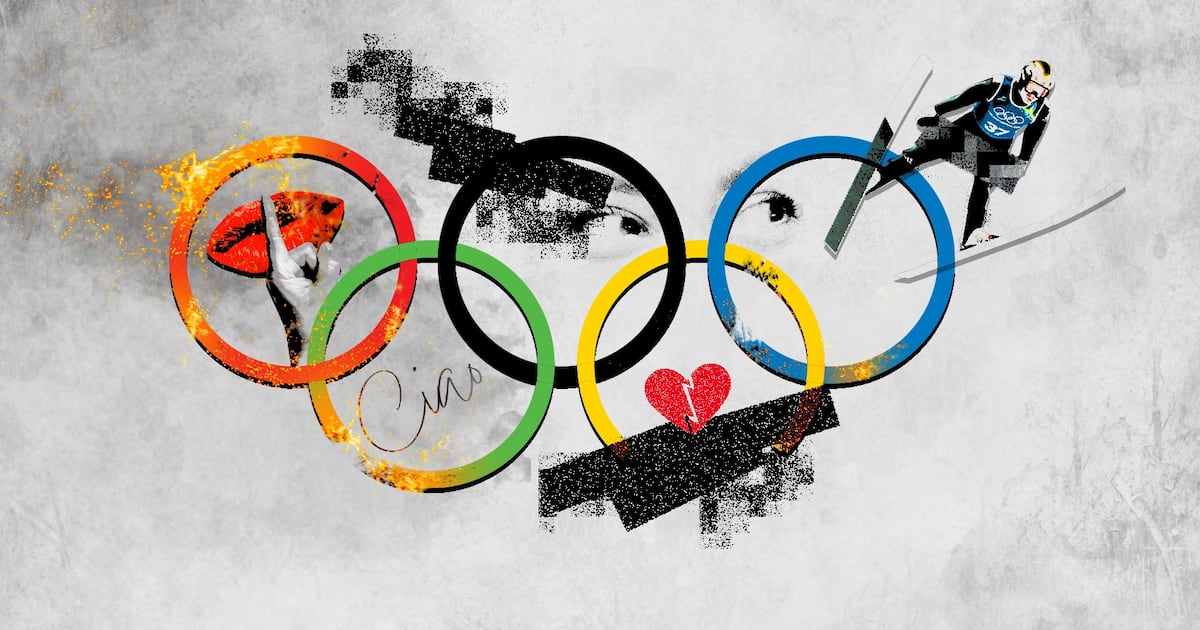The Kanye and Kyrie show is one K short of a racist trifecta, but not for lack of contenders.
Bishop Talbert Swan, president of the Greater Springfield (Massachusetts) chapter of the NAACP and a prelate of the Church of God in Christ—the largest Holiness-Pentecostal denomination, whose membership is mostly Black American—has been furiously defending the beleaguered celebrities, who recently staged spectacular displays of financial self-harm by spreading antisemitic conspiracy theories in interviews and on social media.
“Nothing debunks the stereotype,” Swan snarked in a tweet last week, “of having an inordinate level of influence in American sports and entertainment like stripping $1 billion from a Black entertainer and getting a Black athlete suspended while forcing him to apologize and pay half $1 million for offending you.”
It’s true that Jews have had the temerity to be offended.
Kanye “Ye” West promised to go “Death con 3 On JEWISH PEOPLE”—an all-caps crusade as conspiracy theories fire like missiles across the discourse, and regularly detonate in violence against vulnerable minorities. Soon after, NBA star Kyrie Irving promoted Hebrews to Negroes, a project that depicts white Jews as the “Synagogue of Satan,” usurpers of the religious identity of Black people. Irving plays for the Nets in Brooklyn, where a sizable portion of antisemitic hate crimes occur in neighborhoods where Black people live side-by-side with Orthodox Jews.
Both West and Irving have deployed a familiar formula to defend themselves. Kanye: “I actually can’t be Anti Semitic because black people are actually Jew [sic].” Irving, with more grace and grammar: “I cannot be Antisemitic if I know where I come from.” They are alluding to the core claim of Black Israelism—that Black people are, in fact, the true descendants of the biblical Israelites—highlighting the illogic of labeling them antisemites.

Kanye West.
Rachpoot/Bauer-Griffin/GC Images/GettyAs a dignitary of a historically Black denomination, Bishop Swan has a stake in this. Pseudo-anthropology linking contemporary Blacks to the Jews of the Bible is normally associated with smaller groups from new religious movements, like the Black Hebrew Israelites and Louis Farrakhan’s Nation of Islam, but it has its origin in 19th century Black Christianity.
Countless peoples—including white Americans—have identified strongly with the biblical Israelites. The innovation of Black Christianity was to relocate the site of this identification; instead of the Israelites in Canaan, Black Christians linked Black people in the New World to God’s Chosen who were enslaved in Egypt. “Without doubt, the Exodus story was the most significant myth for American black identity, whether slave or free,” noted the scholar of religion, Albert J. Raboteau.
By contrast, white supremacists used the biblical figure of Ham—first in religious and then in pseudo-scientific proofs—to argue for Black inferiority. The Curse of Ham and the Hamitic Hypothesis asserted, respectively, that Black people were morally and biologically less-than-human, even going so far as to argue that any African civilization of historical note was, in fact, the work of non-Blacks (i.e. “Hamites”) from Asia. Racially tendentious portrayals of biblical figures with pink skin and blue eyes became acutely polemical.

Kyrie Irving.
Dustin Satloff/GettyBetween the world wars, over a million descendants of enslaved Black Americans migrated north, initially to take advantage of the wartime labor shortage and escape the most savage horrors of the period. There they found unsafe and exploitative conditions in alienating new industries—such as foundries, stockyards, and slaughterhouses. These Black laborers were used by the bosses to break strikes, which earned them the enmity of working-class whites, often migrants themselves from Europe. These and other tensions culminated in the Red Summer of 1919, an epidemic of murderous race riots across American cities in which hundreds of Black people were killed.
Black migrants, reeling from these pressures and the social upheaval of relocating their families from their hot homes in the rural South to frigid, frantic, crowded cities, found the established northern Black churches sterile and unwelcoming. A ferment of new religious movements filled the gap. Based in storefront churches, syncretic strains of Black Judaism, Christianity, and Islam developed belief systems in which the racial genealogies of the established Black church became literal and exclusive.
“The followers of Prophet Cherry [the leader of one of the first congregations of Black Hebrews] believe that they are the Jews mentioned in the Bible,” reported anthropologist Arthur Huff Fauset about a 1930s Philadelphia sect that was a prototype for the Black Hebrew Israelites.
“They claim that the so-called Jew is an interloper and a fraud. The Black Jews believe in Jesus Christ, but they also believe that he was a black man.” Charismatic preachers like Noble Drew Ali and Wallace Fard Muhammad in Chicago evolved this racial supersession into a version with an Islamic face—the mythology of the Asiatic Blackman, best known in the theology of the Nation of Islam.
These racialized myths were meant to reclaim “Chosenness” for Black people in a time of intense persecution. They had the salutary effect of reconstructing Black history, which had been truncated by slavery, and directly answered the Hamitic claims against Black civil rights.
The problem is they merely reversed the logic of the lies.
The Nation of Islam recast the civilizing “Hamites” as people of color, but claimed that their origin was Mecca and their true identity Muslim. Like the racialist quacks of the era, they regarded Black Africans as inferior to the Hamites!
And the Black Hebrew Israelite claim, which had broad appeal, sometimes stirred a bitter sense of displacement and effrontery. Bishop Swan tweeted in 2018: “The Jews you see in Israel today are descendants from European Jews that settled there after WWII… They are not the Jews of the Bible.” And more recently: “Christians are followers of a Black, Palestinian Jew who was lynched by the Roman Empire…” He rails against the oppression of Palestinian Arabs by “European” Jews, despite the fact that approximately half of Israelis are Sephardic and Mizrahi—often darker-skinned Jews of Middle Eastern and African descent.
This is because narratives of racial supersession are conspiracy theories more than theologies—dualistic myths rather than assessments of the real world.
The idea of a stolen birthright requires an antagonist to do the stealing. Whether it’s Kanye West complaining that “Jewish Zionists” spread sexual stories about his wife because they’re “about that life,” or Kyrie Irving boosting misinformation about Jewish slavers inventing the Holocaust to distract from their crimes—white Jews are demonized as all-powerful, misanthropic imposters who humiliate Black people and enrich themselves at their expense.
“Kanye West has been publicly buck broken,” complained Bishop Swan, referring to a phrase that was adopted to describe the open sexual humiliation of a slave. “He apologized to the Jews, but not to Black people.”
In his role as a prominent NAACP leader, Swan was invited in March to become a member of the Massachusetts Hate Crimes Task Force.

Bishop Talbert Swan.
Jacquelyn Martin-Pool/GettyIn the last three years, violent men who were motivated by exclusive and conspiracist Black Israelism have attempted two mass murders—one left six people dead, while the other left a rabbi and four others suffering machete stab wounds after being attacked during a Hannukah celebration. With street violence against Jews continuing to rise—including incidents where attackers disparage the Jewish identity of their targets as fake—it’s hard to imagine Swan being an effective advocate, at least on behalf of the victims.
When white Christians push exclusive theologies of substitution, we have no problem recognizing them as antisemitic. Spiritual self-identification is natural, but there should be no doubt about the nature of what Kanye and Kyrie are promoting. In Irving’s case, it even includes Holocaust denial.
A religious leader and civil rights activist like Talbert Swan should be the first line of defense against the dangers of paranoid, racialized religion. He should not be propagating it.
(Bishop Swan and the NAACP both did not respond to The Daily Beast’s requests for comment.)








